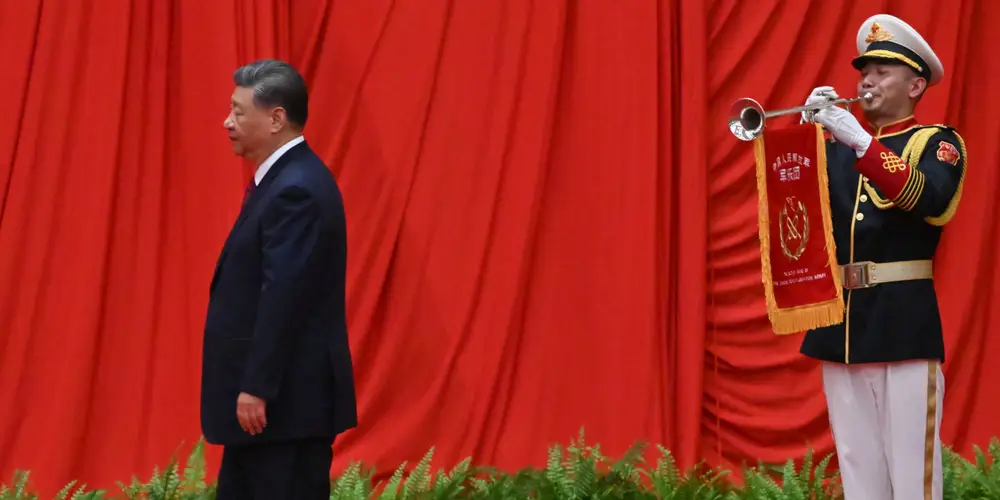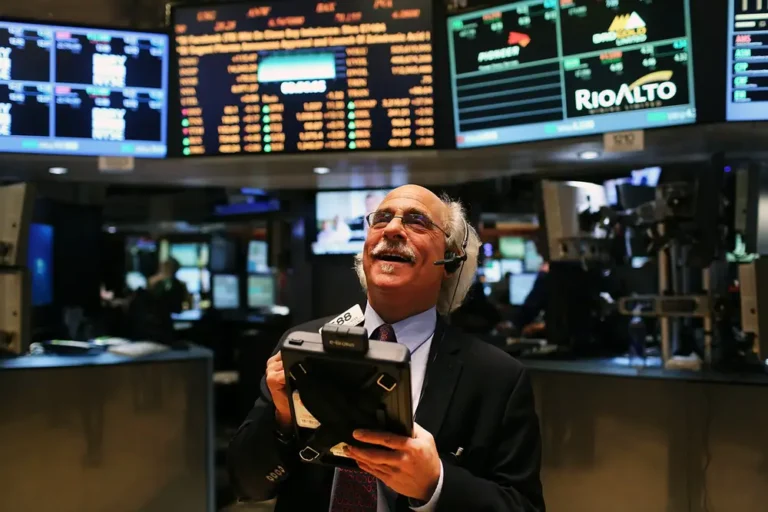Wall Street is cutting outlooks for Chinese stocks just weeks after a stimulus blitz

Chinese leader Xi Jinping
China’s stock market is likely headed for tougher times ahead, at least according to a few prominent Wall Street firms.
Strategists from the likes of Goldman Sachs and Morgan Stanley have recently cut their outlooks, warning of slowing growth, even as China’s top leaders continue to unveil stimulus measures meant to reinvigorate its slowing economy.
Goldman Sachs cut its year-end 2025 target on the MSCI China Index from 84 to 75, keeping its overweight rating on the stocks but citing potential for lower earnings growth as a result of US tariffs. The index traded at roughly 64 on Monday.
Morgan Stanley, meanwhile, has a target of 63 by the end of next year. The firm had taken away its underweight rating on the index back in October, pointing to a better policy outlook.
The shifting outlook comes as the country has rolled out stimulus measures to address persistent economic challenges like its slumping property market and weak consumer sentiment.
The analysts had initially seemed optimistic after the first round of stimulus announced in September. Both firms upgraded their ratings on Chinese stocks in the weeks after, with Goldman Sachs analysts upgrading their stance to overweight, while the Morgan Stanley strategists changed their rating from underweight to neutral.
Traders took note. The MSCI China Index hit its highest in over two years at the end of September, but in the time since, the index has now fallen some 15% as analysts wonder how much more stimulus is left.
“We see a low limited chance that China’s government will front-load enough fiscal stimulus to target consumption and housing in 2025 due to concerns over moral hazard and a premature transition into a ‘welfare state,'” Morgan Stanley strategists wrote in a Sunday note, adding, “We expect even stronger headwinds on corporate earnings and market valuation in the coming months.”
The analysts are also pricing in tariff risks from Donald Trump’s US election win. Trump has proposed sweeping tariffs, including steep 60% duties on Chinese goods. They acknowledge, though, that with the actual extent of the tariffs yet to be finalized, there is still a great deal of uncertainty.
“The magnitude, profile, timing of the tariffs, and the resulting policy reactions from China make the situation more fluid and difficult to analyze,” the Goldman analysts wrote.
“The only certainty is that it will be the overarching theme driving market volatility in the months ahead, and investors will monitor the tariff developments closely to dynamically adjust their views on the market,” they added.






